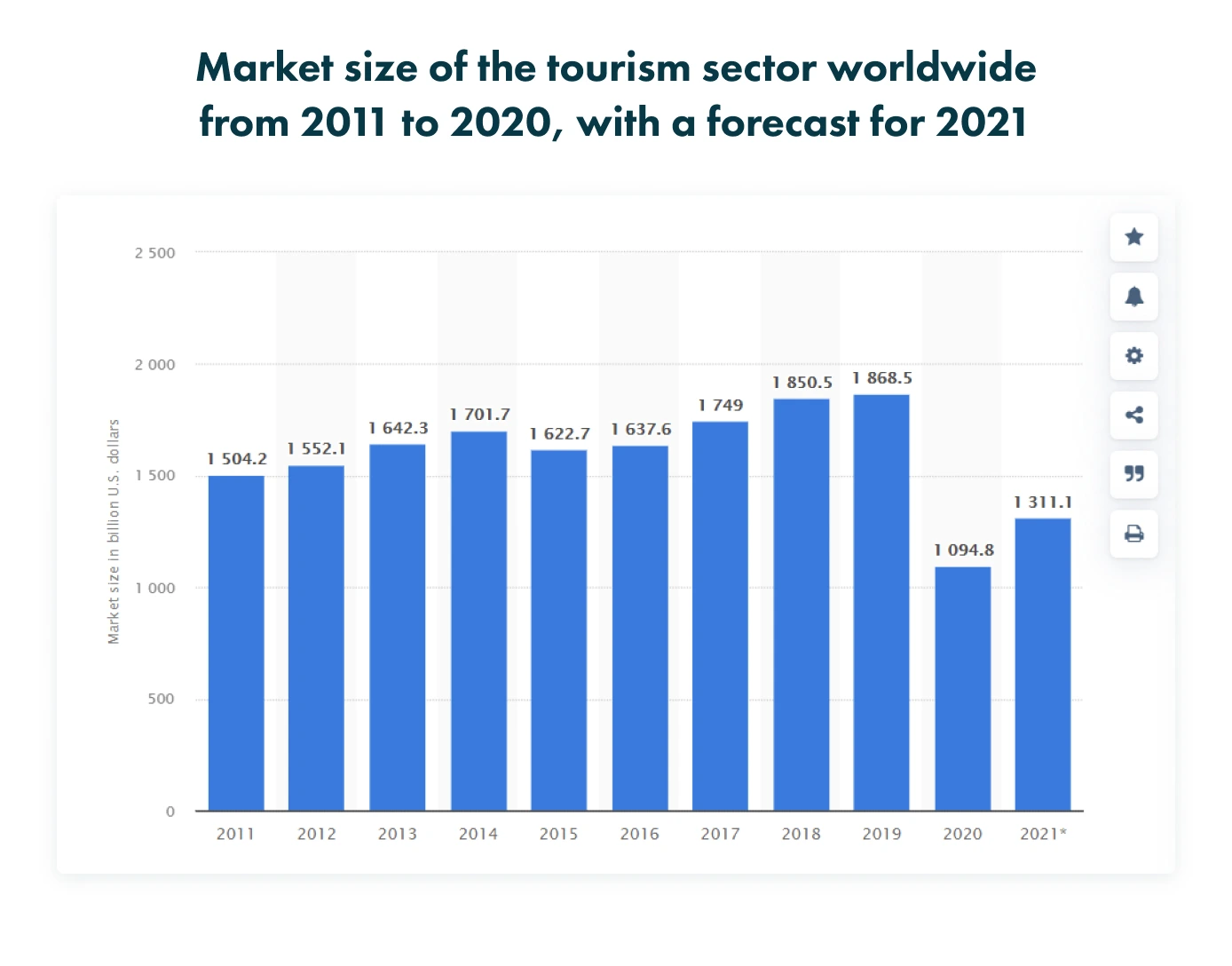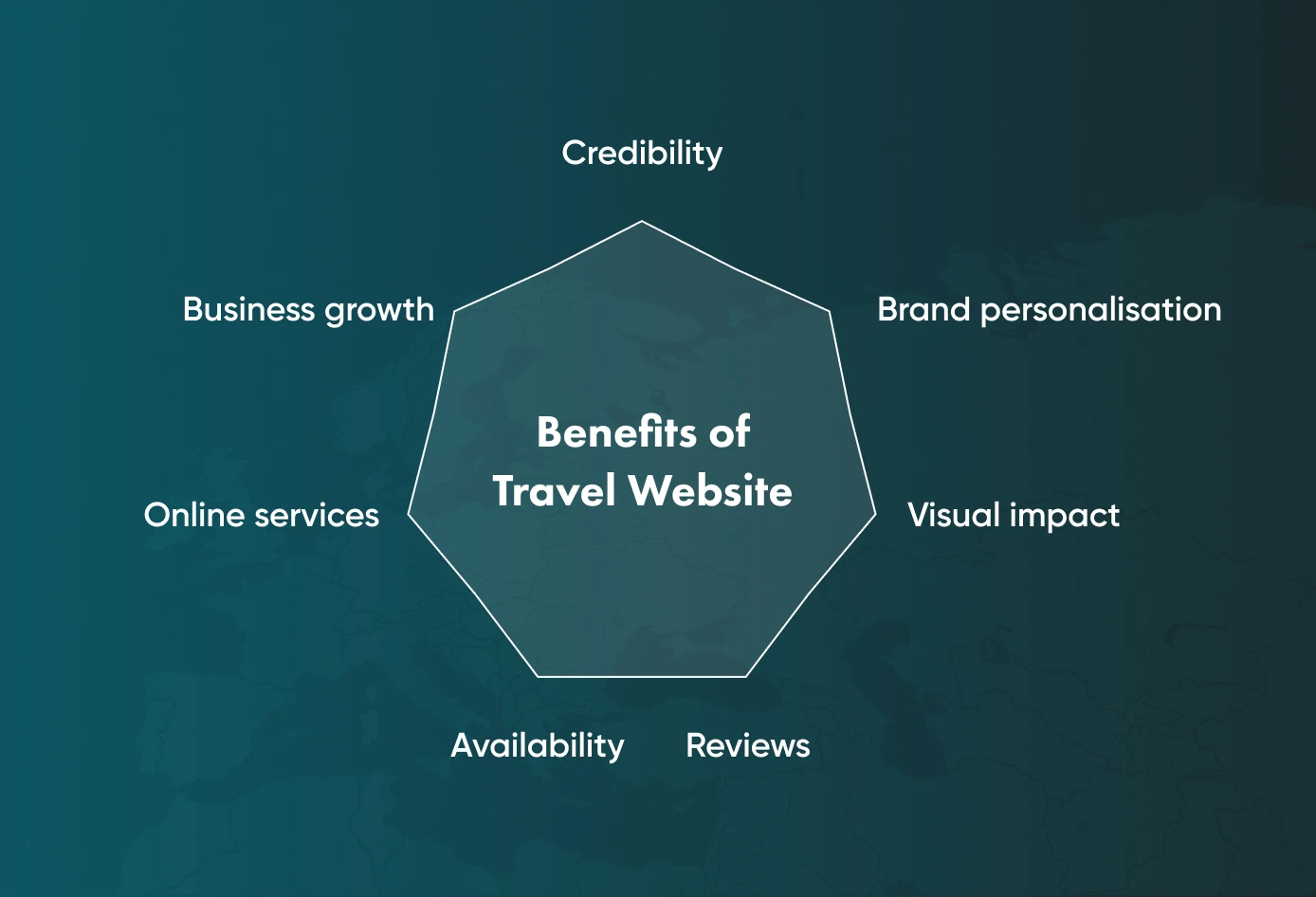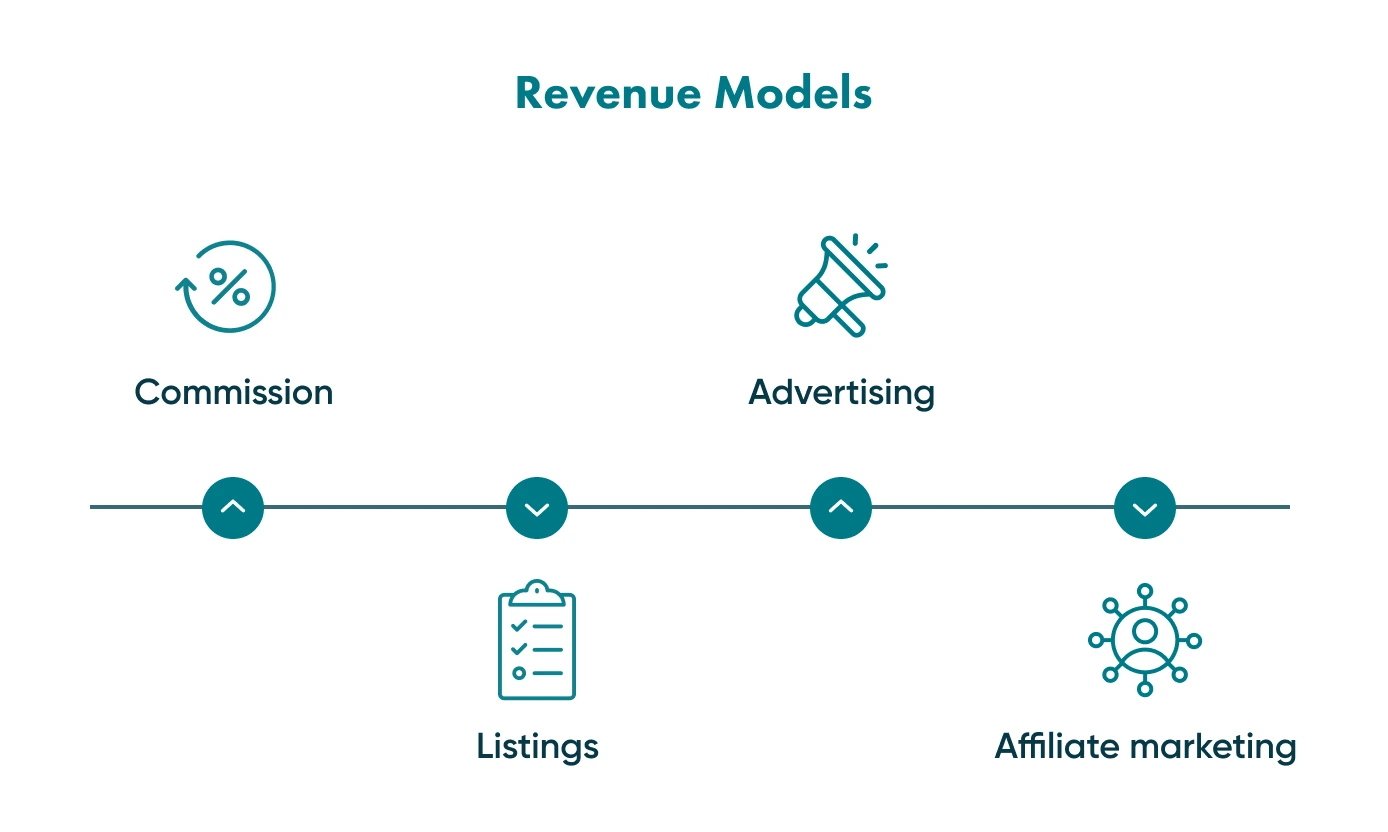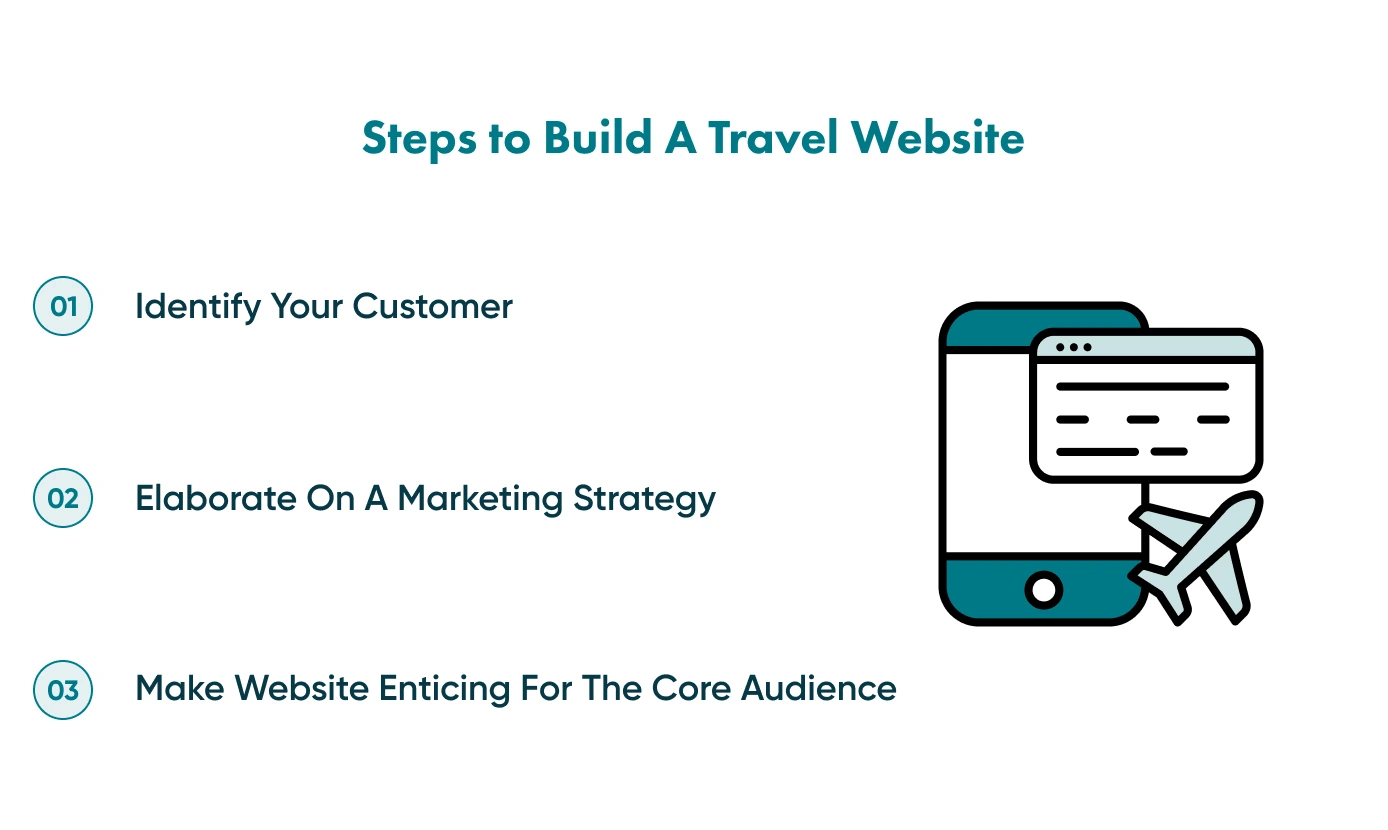Essential Things To Consider When Building A Travel Website In 2022


The tourism industry has suffered in recent times because of the COVID-19 pandemic restrictions. However, business owners have also been actively creating new opportunities for travellers to help them experience a safe and comfortable holiday. Owners of hotels, restaurants and travel agencies provide online solutions to reduce personal communication while maintaining a high-quality service.
These days, the survival of most businesses related to the hospitality industry has become more dependent on their website. That is why it’s important to have more insights into the creation of travel websites, including benefits, revenue models, and some valuable marketing tips.
The Purpose Of Travel Websites
A travel website provides information about various tourist destinations around the world. Travellers surf such websites when they plan to go somewhere, so they can find all information about the place they want to visit. This is becoming a more mobile activity such as any other online industry. The mobile aspect of this industry is continually changing and now is turning to incorporate progressive web applications (PWA), to enhance the customer experience.
Travel agencies and hotels often use travel websites to allow tourists to book a room, reserve transportation, or perhaps a tour. Its primary purpose is to simplify the process of destination research and booking for travellers.
The pandemic severely impacted the market size of the tourism sector. As Statista claims, the revenue in 2019 for the travel sector was 1.86 trillion U.S. dollars in 2019, while in 2020, the market size declined to 1.09 trillion U.S. dollars. In 2021, the total revenue is expected to have risen to 1.3 trillion U.S. dollars showing that the potential of the travel market is vast, and the sector has started recovering.

Types Of Travel Websites
A travel website is a broad concept, and it has many types. We will review the most popular ones.
Transfer website.
A website where users can compare different trip options and find the best way to travel from point A to point B. They can compare it by transport type (train, plane, bus), price, distance, time, and date.
Booking website.
Travellers want to find an excellent place to stay, and hoteliers are ready to provide it. Booking websites can be both in-house hotel booking websites or hotel booking marketplaces. An in-house site implies that a specific hotel created its own website for room reservations. A hotel booking marketplace is a site similar to Booking.com, where you can find the diversification of hotel websites worldwide.
The article about hotel booking website development may reveal some helpful information for you.
Food delivery/restaurant booking.
Another form of travel website is the food delivery website or restaurant website. Travellers are always looking for a good local place to eat, so they can find a restaurant and make an online reservation or simply order food delivery. By the way, you can consider food delivery a good business idea. Check our articles about food delivery trends and food delivery website development.
Aggregators.
It is a kind of all-in-one website where users can find flights, tours, cruises, and hotels to book a room. These websites allow users to compare possible options to choose the most suitable one. Kayak is a good example of an aggregator website.
Apart from these types, there are two trending options you can pay attention to. The first one is workation. It is a combination of work and vacation. People visit other countries to change the scenery but keep working. So you can create a travel website that will select the best tours for a workation for users.
The second trending type is internal tourism. Pandemic restrictions lead to a more significant number of trips within the country of residence. Your travel website may provide users with top-quality locations within their country to visit and spend time there.
Travel website development requires the skills of experienced software developers. Contact us to build your website!
Why Is a Travel Website Important?

The benefits of a travel website may prove that you need to create it to promote your business.
Credibility
Today people are wary of travel-related companies which have no website. They cannot imagine how it is possible to do business without a website or mobile app. Thus, they cannot trust this company. Alternatively, a digital presence helps you build tight relationships with customers.
Brand personalisation
A website is a way to personalise your brand and make it captivating. You provide your service in a preferred method to help travellers remember your brand and remain loyal to you in the form of return business. All visitors to your website may become customers, and your goal is to attract them with the provided services.
Visual impact
The first impression means a lot. So you need to add more images to your website since they can catch visitors’ attention better than a simple text block. A picture paints a thousand words.
Reviews
Tourists must know with whom they will work. Opinions of other users may help visitors make their decisions, so your service recommendations are essential, and they will encourage potential customers to become your actual customers.
Availability
A website is available 24/7, and it can provide users with required and up-to-date information whenever they visit it. You can use chatbots if users need specific services at night time. However, it is better to have a customer support team during business hours and let customers communicate with humans, not machines.
Online services
As we noted about hard times connected with the pandemic restrictions, users want to obtain more online services. In this case, regardless of the travel website type you create, you should provide users with an opportunity to make online reservations, buy tours or flights, and handle other related activities.
Success
Finally, a well-developed website leads to sales growth since users trust your services. The website attracts customers with a catchy design, and it provides up-to-date and relevant solutions.
Travel Website Revenue Models

You need to decide upon the monetisation methods your website will use. The revenue model type will depend on the goal your website follows. You will find the most common ways below:
Commission
When you provide a platform for hotel booking or tour reservations, it works as a mediator between the customer and the end service provider. So you will receive your commission per order (the commission amount can be agreed on individually).
Listings
Travel service providers will pay you for higher visibility in the listing. It is a premium listing for them that is beneficial both for providers and you because it leads to additional revenue.
Advertising
The most widespread monetisation method for today is to launch social media campaigns, post ads directly to your website, or run email marketing for third-party travel agencies. However, don’t overload the website with ads since it will irritate users.
Affiliate marketing
Another good option is to promote your company and increase earnings. It is a partnership between you and similar platforms when you pay them for posting links to your website via their blog and other sources. It leads to higher conversion on your website.
Go Wombat provides its services to build software of any complexity — contact us!
Unlock Success with Premium Software Development
Contact us


Helpful Tips For Building A Travel Website

There are some steps you should follow when you plan to launch a travel website. However, you shouldn’t neglect a development process as well that requires the involvement of qualified specialists. If you want to get acquainted with development steps, read our in-depth article about the development process of a travel website.
Identify Your Customer
This is the first step you should start with, regardless of the travel website type you plan to launch. Your goal is to identify the core audience of your website and analyse the travel market to understand your regular customer. Once you find your target audience, think about their pain points and how your website can solve them.
You can also decide upon the geography of your service — whether it is for the local market or it will work globally.
Elaborate On A Marketing Strategy
We recommend planning a marketing campaign that will promote your business efficiently. You can set specific KPIs and metrics to achieve within a certain period (six months, for example). Analysing competitors is an excellent way to identify their promotion methods and test them in your marketing strategy.
A well-thought-out marketing strategy will help you estimate the marketing budget more precisely and determine how to create the best travel website.
Tailor The Website To The Core Audience
Detailed Information
Ensure to provide detailed trip information. Help visitors book the perfect trip — provide information like hotels, flights, location, travel dates, and price ranges. Every tiny nuance can be significant, so be precise.
Serve as a tour guide
Inspire your visitors to travel. Add as much information as possible about each location your website provides tours for, explain why a specific destination can be an excellent choice (videos and images come into play), and motivate them to travel.
Share travel deals
Everyone wants to save money and find an affordable trip. Offer exciting discounts for hot tours to capture the attention of visitors. They want to have specific benefits for them.
Provide helpful tips
Travelling to another country comes with anxiety sometimes, especially when it is a first trip to the country. Therefore, your goal is to provide necessary information about the location (like cultural and linguistic characteristics).
We are always glad to provide more details, so contact us anytime!
How can we help you ?





